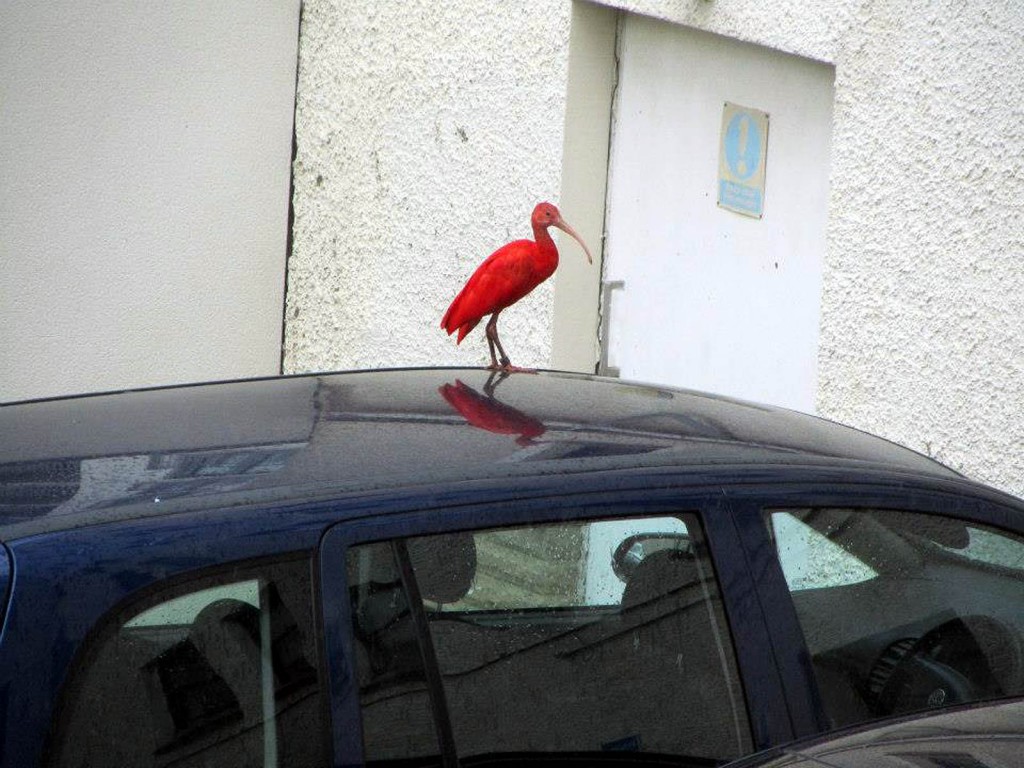ZOO chiefs are in a flap after a tropical bird broke free with the help of a humble squirrel.
The scarlet ibis, nicknamed Cherry because of its colour, managed to escape from Edinburgh Zoo and was not tracked down until it was spotted three miles away in a city dentist car park.
It is believed the bright red feathery fugitive – which is still at large – was able to hatch its escape plan after a squirrel chewed through the net roofing of its enclosure.

Steve Philip, a business development manager with Cherrybank Dental Spa, contacted the RSPB after spotting the tropical wader outside his office wader.
He said: “I was sat at my desk when it caught my eye, there usually wouldn’t be a lot of colour in the car park.
“At first I thought it was an ornamental feature but then it moved. I couldn’t believe it because it’s such a bright distinctive red colour.
Mr Philip said that despite several tries zookeepers have been unable to net the ibis.
He added: “Folk from the SSPCA and the zoo have made a number of attempts to net it to no avail.
“One of the guys from the zoo told me how surprised they were that it had survived and not been attacked and killed by seagulls.
“Hopefully they’ll recapture it eventually and return it to its enclosure.”
Edinburgh Zoo has eight scarlet ibis in total – four male and four female – and they share their pen with the Chilean flamingos.
The bird is about 2ft long and is generally native to South America, particularly Trinidad & Tobago and Brazil.
Darren McGarry, head of animals at Edinburgh Zoo, confirmed the bird’s escape attempt but was stunned the animal has not been attacked by seagulls and other potential predators.
He said: “A small hole in the netting over the top of the enclosure was apparent this morning, so we think a squirrel must have chewed through it overnight.
“The ibis has obviously decided to make an escape and fly into the centre of Edinburgh to see what all the fuss is at this time of year.
“In all seriousness though, we are a bit concerned about the bird as it is so brightly coloured and could be attacked by other native birds.
“Together with the SSPCA our bird team have come close to capturing the bird but we haven’t had success yet.
“The best to catch the bird will be when it comes down on its own or gets hungry.”
In May a similar bust was attempted when four hogs escaped from their enclosure while being moved from a zoo to a private collection.
Also in May, staff were forced to close down a section of the premises as they tried to recapture an escaped baby gelada baboon.
In July 2009, a group of barbary macaques got out of their new home and were living in the trees on Corstorphine Hill for a few days before being recaptured.